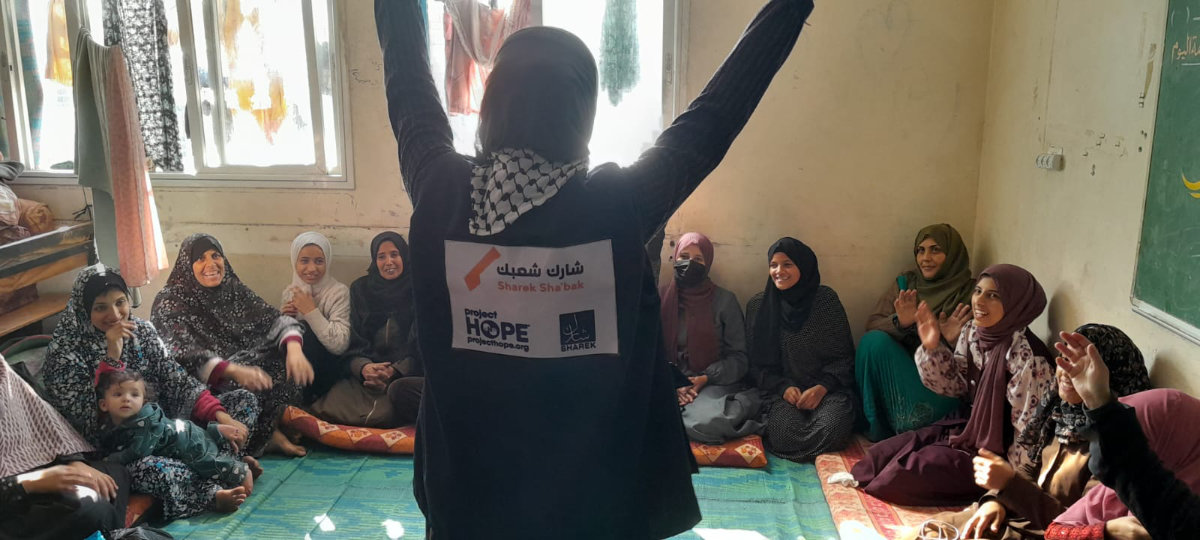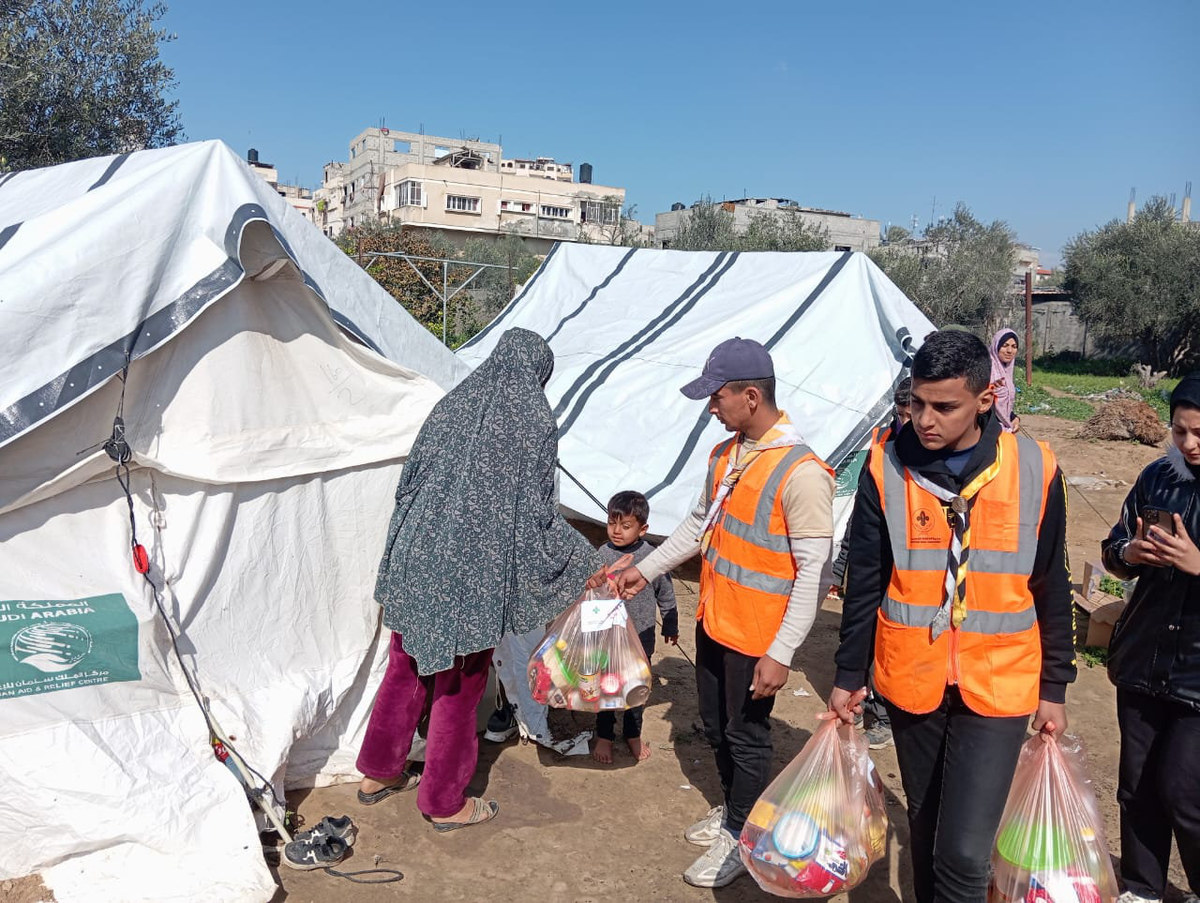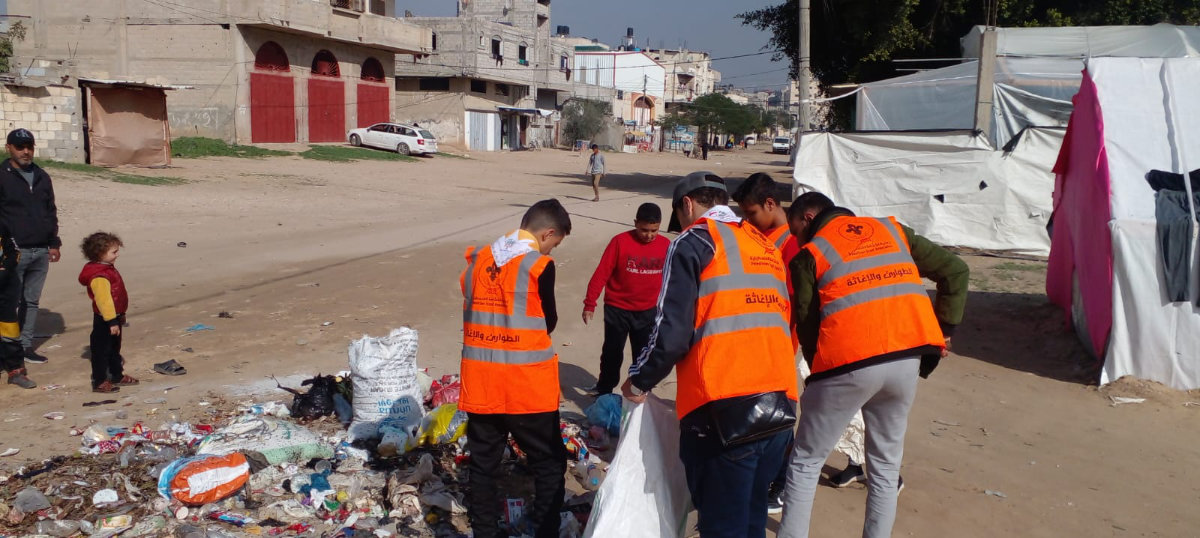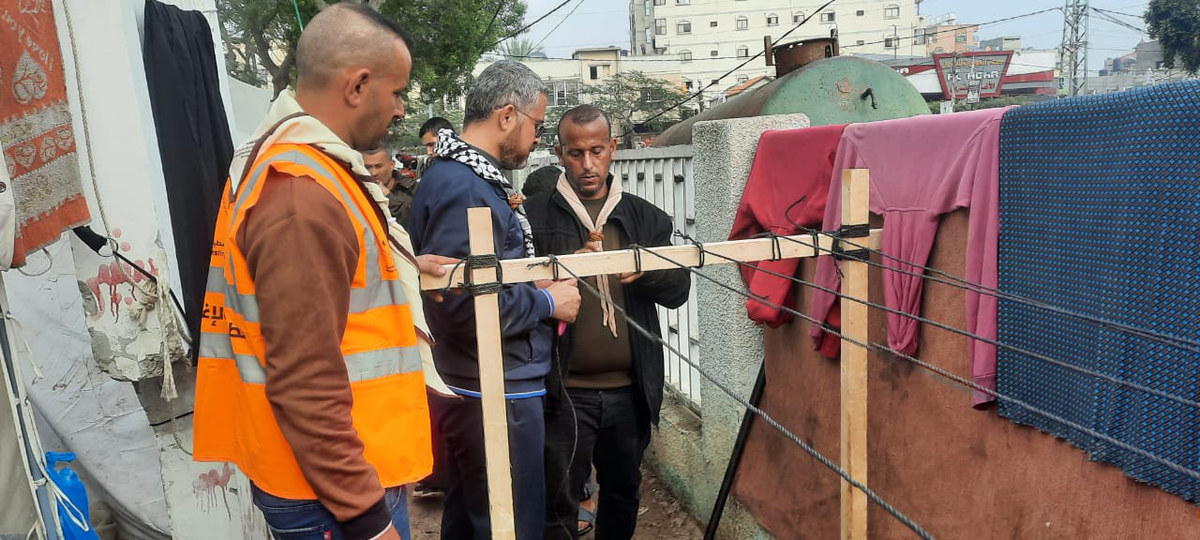BEIRUT: More than 150 members of the Palestinian Scout Association have been risking their lives to support children, women, and displaced families in war-torn Gaza.
Basic life necessities such as food, water, shelter, electricity, healthcare, and education have vanished since Israel launched its unprecedented military assault on the Strip following the Hamas Oct. 7 attacks.
With around 2 million Gazans displaced and taking refuge in shelters and makeshift tents, often with little if any food and water available, the PSA stepped in and commissioned members as volunteers to help people cope with daily life in the temporary camps.

Palestinian Scout Association leader Sahar Abu-Zaid during a group session activity with women of Gaza inside a classroom at one of the shelters. (Supplied)
Scout group leader Sahar Jamal Abu-Zaid was among those helping out.
She told Arab News: “It is our duty and obligation to help and support displaced people and traumatized kids.”
Describing the situation in Gaza as “difficult, disastrous, and extremely dangerous,” she said: “These are our people. We are committed to supporting them as much as possible, despite the deep wounds and scars that the war has inflicted on them.”
Abu-Zaid noted that scouts were trained in outdoor survival techniques.
“We have been helping the displaced people through applying our scouting skills by teaching them how to use ropes to make laundry lines, setting up tents for sleeping, making fireplaces to stay warm, and building makeshift ovens to cook,” she added.

Caption
The scouts have been joined by volunteers from Sharek Youth Forum — an NGO operating in Gaza and the West Bank — in providing psychological support to displaced children and adults.
The scout volunteers have been managing a kitchen in cooperation with World Central Kitchen, a nonprofit NGO devoted to providing meals in the wake of natural disasters.
Accounting graduate Abu-Zaid, 31, said: “Scout members are cooking huge meals, as they used to do in camps. We package the food meals and distribute them.
“We also have a bread project, whereby we bake bread on woodfire and distribute them along with the meals. So far, we have been able to provide over 10,000 meals.”
As part of the efforts of Qatar’s Education Above All Foundation and the UN Population Fund in responding to the Gaza crisis, scout members have also been volunteering in different support activities and programs for refugees, especially children.

Palestinian Scout Association volunteers during a clean up campaign in a Gaza makeshift camp for refugees. (Supplied)
The campaign Participate with Your People was launched by the SYF to organize individual and group activities for children and support women and parents in identifying and managing children’s trauma symptoms.
“Today, we are living minute by minute, and we are at risk of getting killed by an Israeli airstrike at any moment. Yet, we have to keep moving forward.
“We are committed to drawing smiles on the faces of traumatized children by involving them in different fun activities and games that we learnt at scouts.
“We are also involving grownups, mainly women, in group discussions and other activities that could help them learn how to survive amid this warzone.
“It is only an immediate ceasefire that would save our lives. We are surrounded by nonstop massacres. People die every minute, and this has got to stop instantly,” Abu-Zaid, who joined the PSA in 2017, added.

alestinian Scout Association volunteers teaching refugees how to build up laundry lines at a makeshift camp in Gaza. (Supplied)
Mai Al-Afifi, a volunteer displaced from Gaza City to Deir al-Balah, told The Guardian: “We do see the games and singing make a difference … for just a little while, the children can relieve their psychological stress.
Nader al-Raqab, the PSA’s leader in Khan Younis, was apprehended by Israelis several weeks ago and has not been heard from since.



























